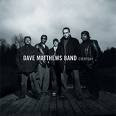1.) "Merely by representing gayness and making it part of everyday discourse,TV talk shows and other forms of commercialized popular culture challenge the worst form of oppression associated with silencing and invisibility and make it more difficult for public schools to continue their own silencing practices"
- This quote is pretty self explanatory. Simply making gays more represented in mainstream culture is a huge step and one that would change the practices of public schools who usually look the other way on homosexuality.
2.) "These abuses get tolerated because gay teachers and students operate in an environment where they feel afraid to stand up for themselves, and because any discussion of gay people continues to be absent in the curriculum so that homophobia is not interrogated"
- Oppression of gay students and teachers continue to be accepted because the society allows it, and the homosexuals are not willing to stand up for themselves because they know they will not be taken seriously by society. A problem in the public schools is that this oppression towards these people(homophobia) is disregarded and not examined.
3.) "We cannot and should not attempt to impose "politically correct" beliefs on students; but we have a responsibility as public educators in a democratic society to engage them in a dialogue in which all voices get heard or represented and in which gay students and teachers feel free to "come out" and find their own voices."
- I really liked this quote because it reminded me a lot of Delpit's piece, "The silenced dialogue". The voices of homosexuals, much like other minority groups, are being silenced in public schools. What we need to do is let all voices be heard and represented, and let people find their "voices".
Thoughts: All in all, I thought this was sort of a boring read and kind of difficult, probably because of its lengthiness. However, I followed along with most of Carlson's points and ultimately agreed with them. Gayness is highly unrepresented in public schools and often times becomes "silenced". I liked at the end how he stated that, as educators, we have the responsibility to have all voices heard in the classroom, black, white, heterosexual, homosexual. This really tied together, to me, with Delpit and her "silenced dialogue. He says, like Delpit, that all voices should be heard in the classroom and in all education.

Kyle, good choice on your second quote. I think this quote is very true and unfortunite. Teachers should not just ignore these things and forget about them.
ReplyDelete